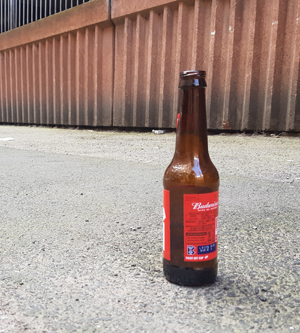Public Spaces Protection Orders (PSPOs) have become common in recent years, set by local government, to combat nuisances and so-called low-level crime such as anti-social behaviour; dog fouling; and littering. One of the more major PSPOs is proposed by Manchester City Council, to restrict the consumption of alcohol in public places across the city, excluding the majority of the city centre (the Greater Manchester Police policing boundary) which has a separate PSPO.
On-street drinking or in parks is hardly a new problem, and hardly only a problem in Manchester; and as a council report admits, several areas of the city have previously been subject to PSPOs to restrict street drinking; and before the PSPO came in, in the mid-2010s, previous similar orders were in place.
The report to the Communities and Equalities Scrutiny Committee says: “The Council and Greater Manchester Police regularly receive reports and witness street drinking associated with crime and antisocial behaviour which has a detrimental impact on the quality of life of some of those living, visiting or working in our neighbourhoods. The types of behaviours associated with street drinking include people urinating and defecating in public spaces, littering, verbal abuse and fighting resulting in people feeling harassed, intimated, distressed and anxious.”
While a public survey indeed complained of drinkers using fences as a toilet, damaging the parks and making anti-social noise, some did oppose an order, arguing that it was oppressive and that ‘parks and other green spaces are surrogates for a lack of gardens’.
The report sets out that – as in other places – the order against ‘street drinking’ still means people are allowed to meet outside for a social drink. “A breach of the Order occurs when an authorised person or a constable asks a person to stop drinking alcohol or surrender their alcohol and they fail to comply. If the person complies with the request no further enforcement action is taken.” And if someone refuses, then ‘enforcement action’ is a £100 fine (a Fixed Penalty Notice, in the council jargon) or perhaps more if police go for prosecution before magistrates.
PSPOs – background
The Coalition Government brought them in, under section 59 of the 2014 Anti-Social Behaviour Crime and Policing Act, to replace the Blair Labour Government-era ASBOs. A PSPO runs for a maximum of three years; then a council has to renew them or let them lapse. For a PSPO to come in, the council also has to go through a process of public consultation.
For this Manchester PSPO, a survey identified 320 locations where street drinking was deemed to be problematic, mainly afternoons and evenings; and 78 locations where not. Police support such an order and what they term its ‘appropriate’ enforcement.
The report does address the risk of displacement – in layman’s terms, what if, when warned by police, street drinkers just move to another place and carry on? The report says that ‘the majority of Manchester’s neighbouring Local Authority areas have similar PSPOs that restrict street drinking covering the whole of or parts of the area’. It comes down therefore to enforcement; and a PSPO is a discretionary power. The survey did provoke responses that particularly in summer people do picnic responsibly in open spaces.









